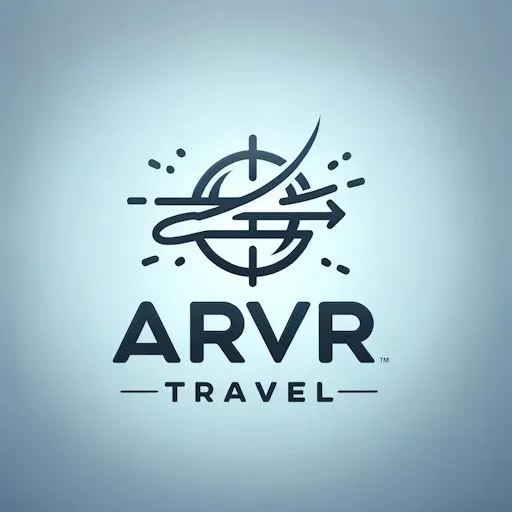Virtual Reality (VR) is revolutionizing the way we plan our trips, offering immersive previews of destinations that enhance your travel experience even before you leave home. This article explores how VR can be utilized for pre-trip planning and what you can expect from these cutting-edge technologies.
What is Virtual Reality in Travel Planning?
Virtual Reality in travel planning allows you to explore potential destinations through immersive, 3D environments. This technology enables you to virtually walk through hotels, navigate tourist spots, and experience local attractions without physically being there. By doing so, VR helps you make more informed decisions about where to go, what to do, and where to stay.
How VR Enhances Pre-Trip Planning
- Virtual Tours: One of the most significant advantages of VR in travel is the ability to take virtual tours of destinations. You can explore cities, landmarks, and even hotel rooms in a fully immersive environment, giving you a better sense of what to expect. Virtual tours are especially valuable for getting a feel of the local atmosphere, something that photos and videos cannot fully capture. Platforms like Google Earth VR offer extensive virtual tours of major cities and natural landscapes, allowing users to ‘fly’ over their chosen destinations.
- Destination Previews: VR provides a realistic preview of destinations, allowing you to assess whether a location meets your expectations before booking. This can be particularly useful for deciding between multiple travel options. For example, Expedia VR offers virtual previews of hotels, letting you explore room layouts, amenities, and nearby attractions in detail. This can help you avoid unpleasant surprises and ensure that your accommodations align with your preferences.
- Interactive Experiences: VR platforms often include interactive elements where you can click on points of interest, read information, and even see real-time weather conditions. These features allow for a more personalized and engaging exploration of potential destinations. YouVisit offers interactive virtual tours that include detailed insights into cultural landmarks, museums, and even entire cities. This level of interactivity adds a new dimension to pre-trip planning, making it more immersive and enjoyable.
The Benefits of Using VR for Travel Planning
- Informed Decision-Making: By experiencing a destination in VR, you can make more informed choices about your itinerary. This reduces the chances of disappointment when you arrive at your destination. For example, if you’re deciding between two beach resorts, a VR tour can help you compare them side by side, ensuring that you select the one that best suits your preferences.
- Accessibility: For those with mobility issues or limited travel budgets, VR offers a way to experience destinations they might not otherwise be able to visit. This opens up a world of possibilities for those who may find traditional travel challenging. VR experiences can also be a great way to include elderly family members in the trip planning process, allowing them to ‘visit’ places and contribute to the decision-making.
- Time Efficiency: Instead of spending hours researching online, VR allows you to explore multiple destinations quickly and efficiently. You can switch between locations, explore different aspects of each destination, and make quicker, more confident decisions about your travel plans.

Best Practices for Using VR in Travel Planning
- Use High-Quality Headsets: For the best experience, use a high-quality VR headset that offers clear visuals and smooth interactions. This ensures that the virtual tours and previews are as immersive and realistic as possible. Devices like the Oculus Quest 2 and HTC Vive are popular choices for experiencing VR content in high resolution, which enhances the overall quality of your pre-trip exploration.
- Explore Multiple Options: Don’t settle on the first destination you explore. Use VR to compare different locations and see which one excites you the most. This can lead to discovering hidden gems you might have overlooked otherwise. For instance, exploring lesser-known travel spots like small towns or countryside areas in VR could inspire a more unique and personalized trip.
- Check for Up-to-Date Content: Ensure that the VR content you’re exploring is current and accurately represents the destination. Outdated content might mislead you, resulting in different expectations from reality. Always verify the date of the VR content or check for recent reviews to ensure you’re getting the most accurate information.
Top VR Platforms for Pre-Trip Planning
- Google Earth VR: This platform allows users to virtually travel anywhere in the world, exploring cities and landscapes in 3D. It’s an excellent tool for those who want to get a comprehensive overview of their destination.
- Learn more about Google Earth VR
- Expedia VR: Offers virtual tours of hotels and destinations, helping users to book with confidence. This can be particularly useful when deciding on accommodations.
- YouVisit: Provides interactive virtual tours of major tourist attractions and campuses around the world, giving you a feel for the environment before you visit.
Conclusion
Virtual Reality is transforming the way we plan our travels, offering a preview of destinations that can make the planning process more enjoyable and efficient. By leveraging VR, you can ensure that your next trip meets all your expectations, leading to a more satisfying travel experience.
Interesting Bullet Points:
- Save Time: VR can cut down research time by allowing you to explore destinations quickly.
- Avoid Disappointment: Get a realistic sense of what to expect, reducing the chances of unpleasant surprises.
- Accessible Travel: Experience places you may not physically be able to visit due to budget or mobility constraints.
By using VR for your pre-trip planning, you’re not just imagining your next vacation—you’re almost living it.
To read more about VR and AR, please visit www.ARVRTravel.com
